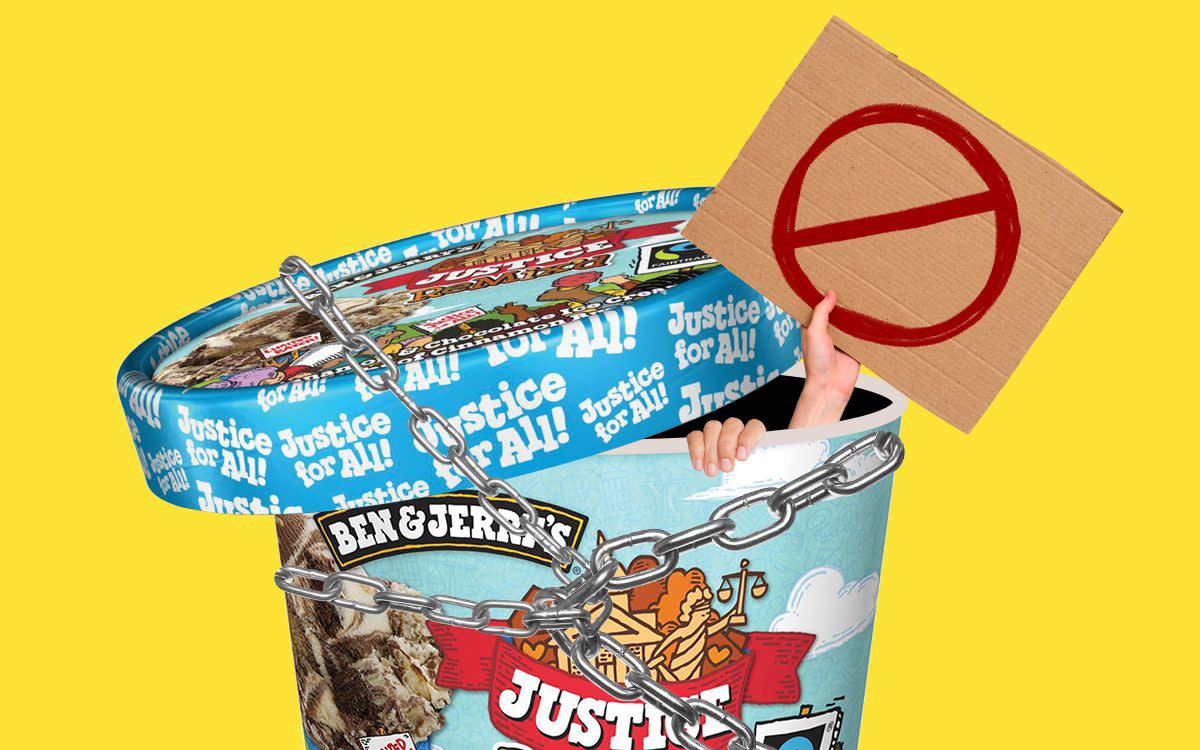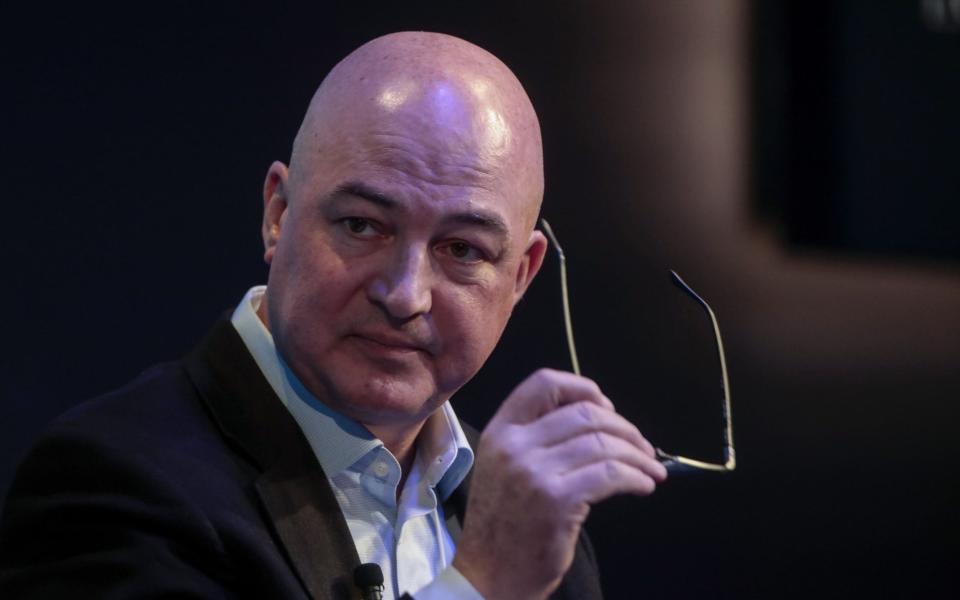How Ben & Jerry's turned sour for Unilever

The founders behind ice cream giant Ben & Jerry’s never wanted their brand to be all chocolate chips and cookie dough.
Ever since setting up the company in a Vermont gas station in 1978, Ben Cohen and Jerry Greenfield have been set on getting their worldview on to frozen goods aisles around the world.
Activism has always been a key part of the recipe. From ‘Justice ReMix’d’, a cinnamon and chocolate ice-cream launched “for an end to structural racism in our broken criminal legal system”, to raspberry and marshmallow ‘Save Our Swirled’ to raise awareness of global warming, and apple pie-flavoured ‘Apple-y Ever After’ in support for same-sex marriage in the UK.
In the last few weeks alone the brand has lobbied for tougher gun control laws in America and hit out at Britain’s ‘racist’ Rwanda plan.
But the brand is no small hipster start-up. It has been owned by Marmite maker Unilever since 2000, meaning one of the biggest global consumer goods giants has been cashing in on the ice cream maker’s brand-boosting social campaigns while keeping a neutral corporate stance itself.
Ben & Jerry’s has an independent board, meaning that, unlike Unilever’s other brands, it has been able to make sure it is heard when it comes to political activism – without dragging its parent into the debate. It can essentially do as it pleases, even setting up a “flavour graveyard” in Vermont so that fans can pay their respects to discontinued flavours, such as ‘Oh Pear’ (1997) and ‘Economic Crunch’ (1987).

But the light-hearted fun is over. Having ticked along nicely for years, the relationship between Ben & Jerry’s and its owner is now in a serious mess.
The ice-cream company is suing Unilever for ending its boycott of occupied Palestinian territories. It says the decision to block it from boycotting Israel, by selling its operations to a local manufacturer, has harmed the "social integrity" of the brand.
Just hours after Unilever first announced it would block Ben & Jerry’s boycott last week, the split was playing out on Twitter.
"While our parent company has taken this decision, we do not agree with it," the Ben & Jerry's main account wrote. The Israeli business's account, meanwhile, already controlled by businessman Avi Zinger and his American Quality Products company, hailed the step as a "great victory".
Rabbi Abraham Cooper, associate dean at Jewish human rights group the Simon Wiesenthal Center (SWC), whose chairman of the board of governors is Nelson Peltz – the billionaire activist investor who recently built a stake in Unilever and who joined its board in late May – argues that “Ben & Jerry's has forgotten that they're not diplomats”.
“For the Jewish community right now, especially in the States, but over here [UK] as well, anti-semitism is not theoretical and it's beyond the pale to have that kind of iconic company to parlay its profits in order to hurt our community,” he argues.
“What we would like to see is Ben & Jerry's go back to doing what it does best, make a couple more flavours. We'll be more than happy to buy it again. But if they stay the course to be politically anti-Israel, political activists, then most of us will be moving over, you know, to Haagen-Dazs or the 100 other brands that are available.”
Tension between Unilever and Ben & Jerry’s has been building for months. After the ice cream maker weighed in on Ukraine at the start of the war, publicly calling for Joe Biden not to send more US troops to Europe, Unilever boss Alan Jope was forced to tell it to “stay out of debates” it does not understand.

Ben & Jerry’s outspoken views on increasingly sensitive matters comes at an awkward time for Jope as shareholders pile pressure on Unilever to increase its share price instead of getting distracted by social issues.
Terry Smith, one of Britain's best known investors, attacked Unilever at the start of this year for becoming "obsessed" with its public image and trying to imbue brands such as Hellman's mayonnaise with a higher purpose, adding that the “most obvious manifestation” of this was how Unilever-owned Ben & Jerry’s refused to supply the West Bank.
The ice cream brand first announced its boycott last summer but Unilever stepped in to overrule the board, saying it still had “primary responsibility for financial and operational decisions”.
The relationship between the two sides will only grow more sour in the months ahead as Ben & Jerry’s fights against its owner. A judge will decide next week whether to impose a temporary ban on Ben & Jerry’s being sold in Israel.
Lawyers say the most likely outcome in this case is that Unilever comes out on top. "I doubt that the judge will accept the board’s argument that the social provision permits the board to make 'the financial and operational decision' to completely abandon an entire market (Israel)," says Jesse Fried, professor of law at Harvard Law School.
Fried says this is especially true when a decision could put Unilever at risk of costly sanctions by states, consumers and investors, making it hard to argue that social priorities run in tandem with financial gains.
What's more, if the courts were to side with Ben & Jerry's this time, then it could grant the ice-cream maker more say over other seemingly commercial decisions in future, says Fried.
"Any aspect of the business could be deemed 'social', giving the independent board control over it. For example, Ben & Jerry’s independent directors could decide that using cows for milk is inhumane, and from now on all the ice cream must be made from non-dairy synthetic materials, even though it would sharply reduce sales."
Unilever and Ben & Jerry’s, whose email sign-offs include ‘Peace, love & ice cream…’, were contacted for comment.

 Yahoo Movies
Yahoo Movies 
